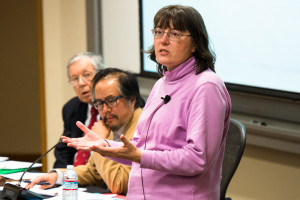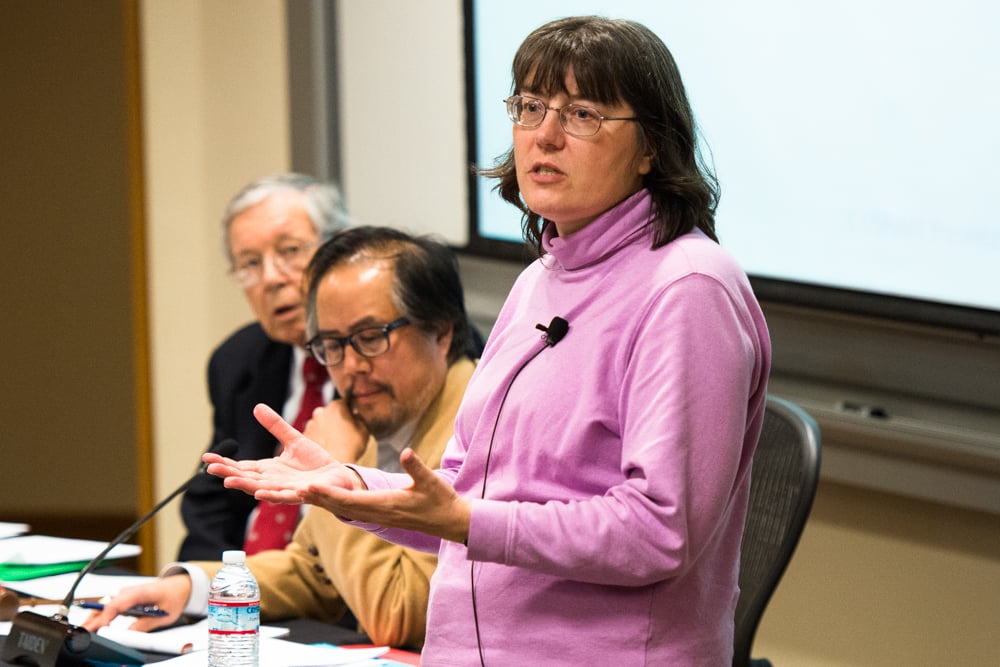
The Faculty Senate discussed changes to course evaluations and also approved a template for a new Joint Majors Program at its meeting last Thursday.
Russell Berman, chair of the Course Evaluation Committee, presented a proposal for a new form that would reduce the number of discrete items on the course evaluation questionnaire from 34 to 17. To reduce repetitiveness, the form would also automatically fill in data such as major and class year.
In addition to addressing students’ irritation with course evaluations’ length and repetitiveness, the new form would also focus on customizability through a pre-questionnaire for instructors about which course components should be evaluated.
As part of an effort to foster the creation of a culture of teaching and learning, the form will also indicate specific course learning goals. The committee additionally recommended publishing student responses to questions like “What would you want another student to know about this class?” and – to ensure that students answered evaluations thoughtfully – suggested that instructors give students fifteen minutes during the last week of class to work on the form.
The second half of the meeting began with the presentation of a new Joint Majors Program proposal, which would integrate the studies of two different departments. The pilot program for the Joint Majors Program, which will initially feature collaborations between humanities departments and computer science (CS), has also been referred to as the CS+X Initiative.
The Joint Majors Program will reduce the number of units required for the combination of the two majors and will also feature a capstone experience integrating the fields of study, according to the presentation.
According to Nicholas Jenkins, director of the CS-X Initiative for the Office of the Vice Provost for Undergraduate Education (VPUE), the idea for the Joint Majors Program originated in the computer science department last year when Professor of Computer Science Mehran Sahami ’92 M.S. ’93 Ph.D.’99 surveyed introductory level CS classes and found a strong interest in combining CS with other disciplines.
“What we wanted to do for students was give them an academic structure where they can think about their two academic passions and merge them together,” Jenkins told The Daily after the meeting.
The Senate approved a six-year pilot period for the program by a unanimous voice vote.
While joint majors may eventually span several different departments, in addition to computer science and the humanities, initial proposals for joint majors in CS/Music and CS/English will be voted on during the next Senate meeting on Mar. 6. If the Senate passes the proposal, those two joint majors will be offered starting next academic year.
Contact Kylie Jue at kyliej ‘at’ stanford ‘dot’ edu.
